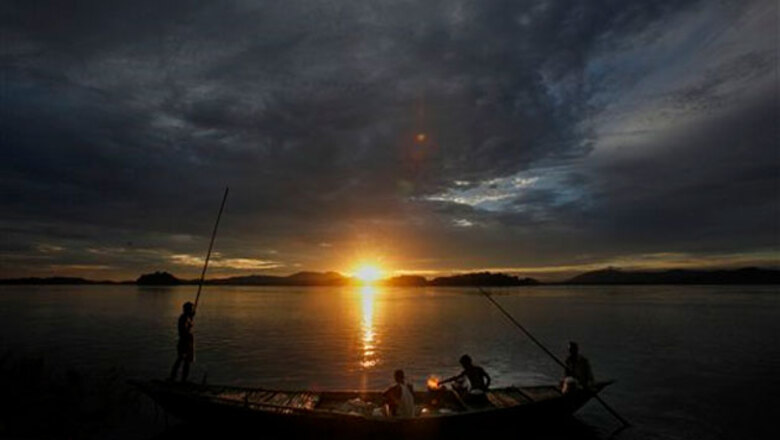
views
New Delhi: Days after Prime Minister Manmohan Singh voiced India's concerns over dam construction on the Brahmaputra river by China and proposed a joint mechanism during talks with Chinese President Xi Jinping, Beijing is believed to have not shown willingness to move on the issue.
During his meeting with President Xi in Durban, Manmohan Singh had sought a joint mechanism to assess the construction work on dams on the Brahmaputra river in Tibet.
He had told reporters that he had raised the issue of trans-border river systems. "I requested the Chinese government to provide a joint mechanism to enable us to assess the type of construction activity that is going on in the Tibetan Autonomous Region (TAR)," the prime minister told reporters on his way back from the Durban BRICS summit.
President Xi had assured him that China was conscious of its responsibilities and the interest of the lower riparian countries and that Beijing would look into the proposal for a joint mechanism.
The prime minister had raised the issue of dam construction in the wake of China's proposal to build three dams on the Brahmaputra.
However, despite the Chinese assurance, Beijing is believed to have told New Delhi that an Expert Level Mechanism between them is "adequate" to decide on the issue.
But India is hopeful of pressing the matter, which is "still on the table".
The Brahmaputra originates in the Himalayas in Tibet as the Yarlung Tsangpo river and flows for about over 2,800 km across southern Tibet through the Himalayas and into India and Bangladesh before merging with the Ganga and emptying into the Bay of Bengal.
Seven rivulets originating from the glaciers in the Tibetan plateau feed the Brahmaputra.
Damming of the river upstream would starve India of water from these snow-fed rivulets during the summer months, according to experts.
According to Ashokananda Singhal, president of NGO Jana Jagriti, spearheading an awareness campaign against China's hydro-projects on the Brahmaputra, China is building 26 hydropower dams on the upper reaches of the Brahmaputra. Once the projects are completed, "85 percent less water will come from China to India" during the summer months, he said.
In 2002, India and China signed an MoU with a five-year duration to help forecasting floods caused by the Brahmaputra in north-eastern India. In 2006, the two sides agreed to set up an Expert-Level Mechanism for cooperation on provision of flood season hydrological data, emergency management and other related issues regarding rivers.



















Comments
0 comment